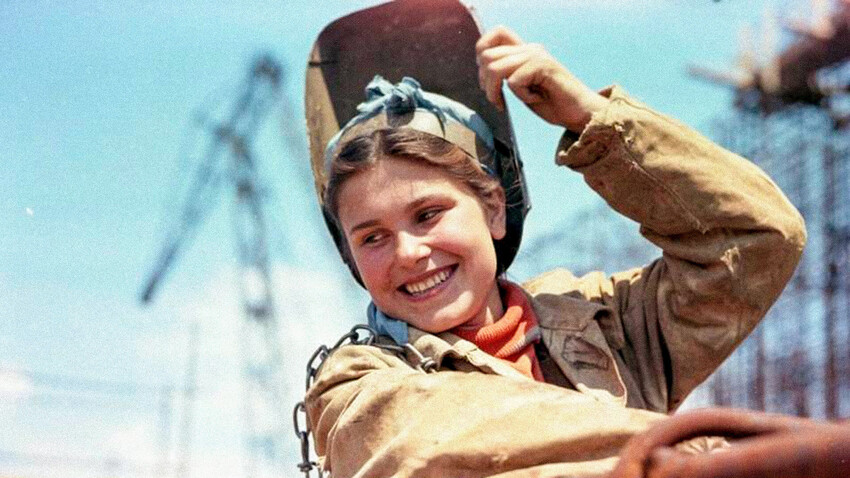
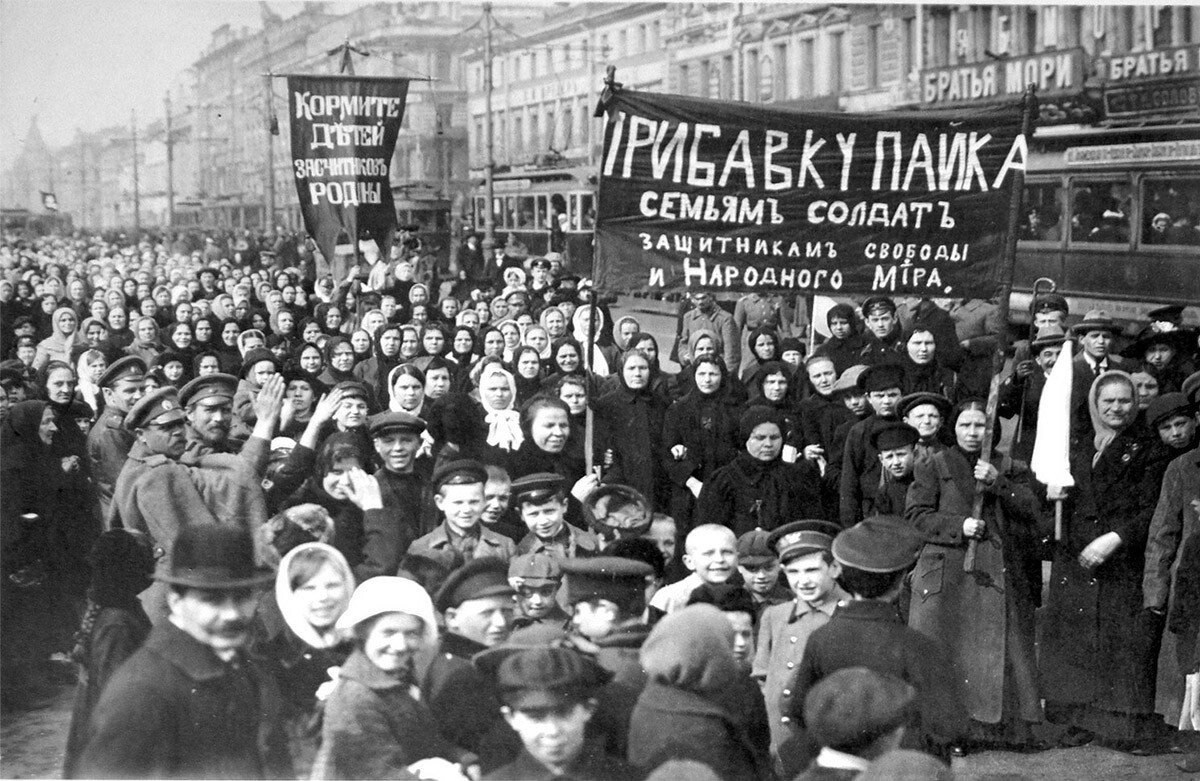
Demonstration of Putilov workers on the first day of the February Revolution of 1917
State museum of political history of RussiaThe first Soviet Decree "on Establishment of the Workers' and Peasants' Government" essentially equalized men and women in political rights and in the exercise of state administration. Soviet Russia became one of the first countries to grant women the right to vote. Moreover, they received the right to be elected to the bodies of state power themselves. Very soon, Alexandra Kollontai would become the world's first female minister.
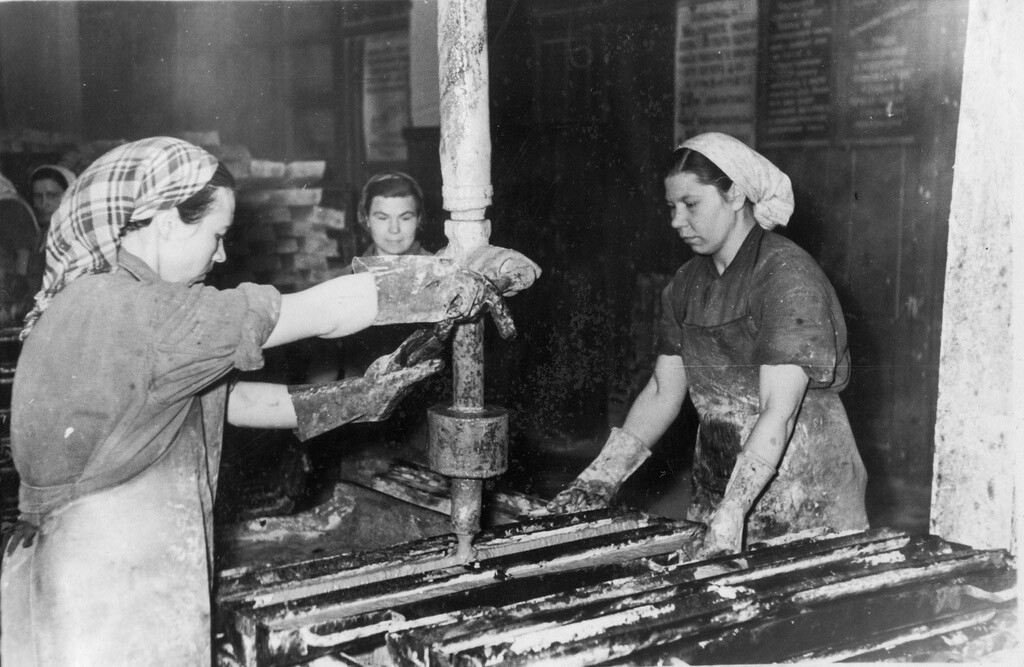
Women at the Inza diatom plant
Valery Sidelnikov archive/Russia in PhotoThe Bolsheviks clearly limited women's working day to eight hours, prohibited women's labor in night shifts and underground work, while giving them equal rights in wages, property and land ownership. Marriage between a man and a woman was no longer ecclesiastical, but civil and became a union of equals where women were no longer slavishly dependent on their husbands.
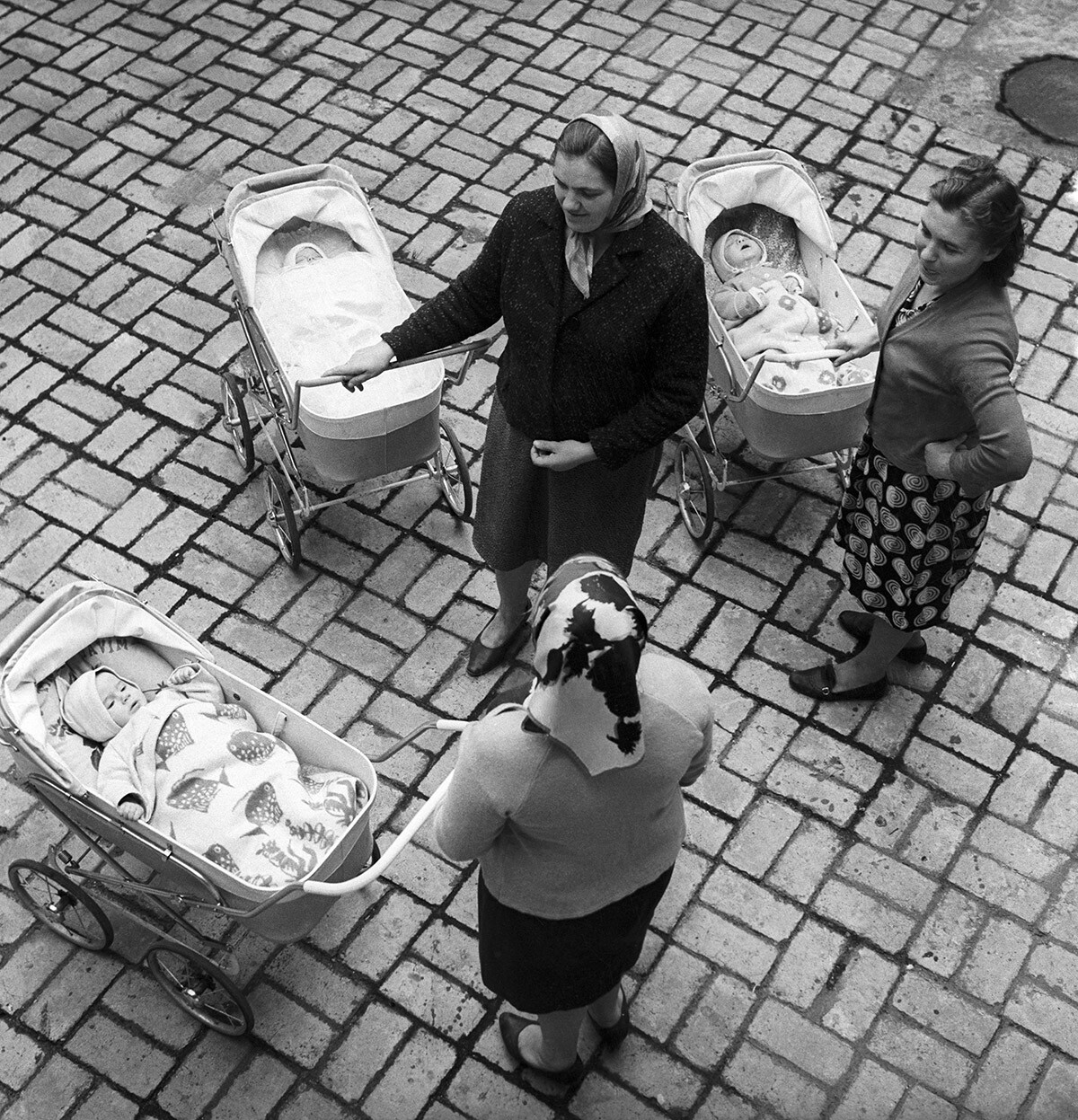
Young mothers walking with their children. 1968
M.Baranauskas/TASSWorking mothers were provided by the Bolsheviks with paid maternity leave and the right to return to work afterward. In the early years of Soviet rule, it was a paid leave for eight weeks before childbirth and eight weeks after childbirth. In addition, nursing mothers had their working hours reduced to six hours for nine months after childbirth. Because it was granted by a ‘special decree’, maternity leave is still called 'dekretny' in Russia.
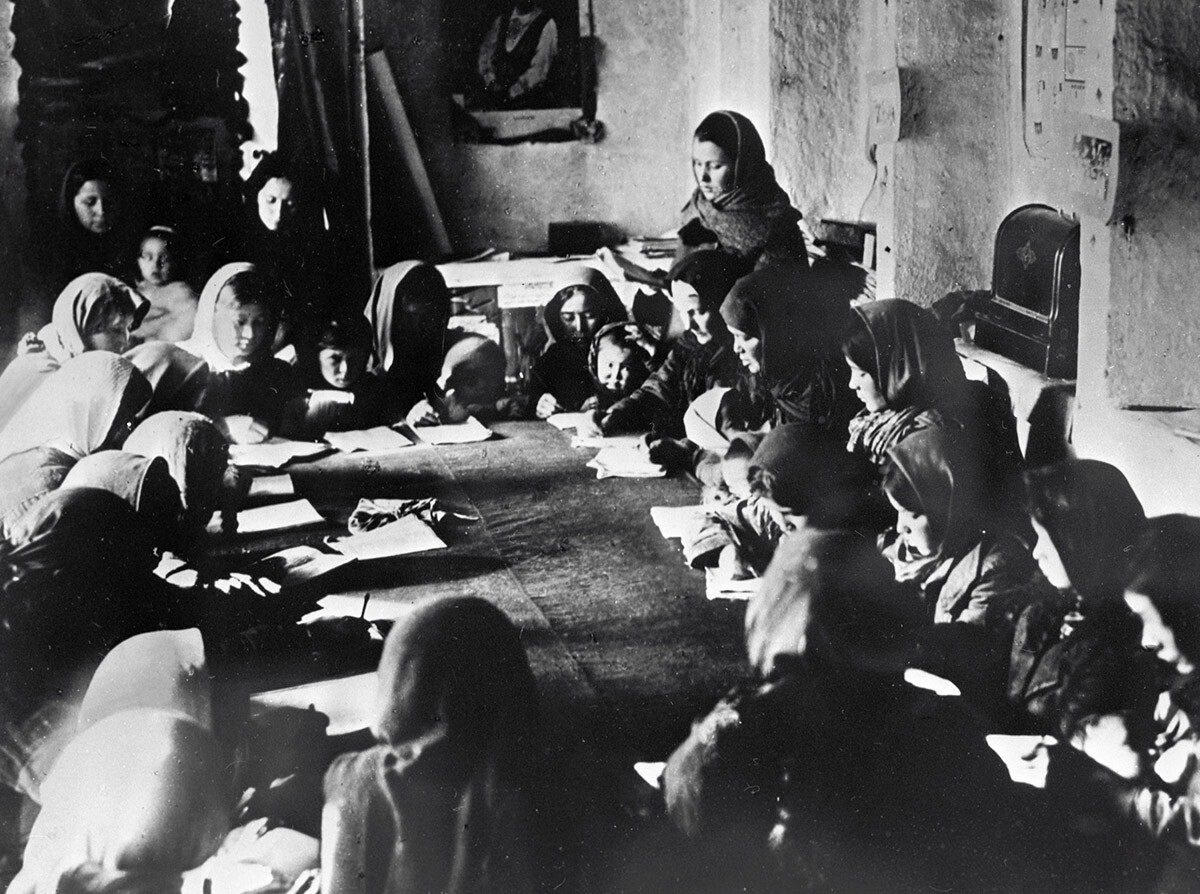
Women came with their children to study at a women's club, 1928
SputnikBefore the revolution, women could already attend schools and even the first exclusive female institutions for higher education appeared. But, they were private, fee-based, accessible to a few and had a rigid competitive system. From 1918 however, women were able to enter universities for free on an equal footing with men.
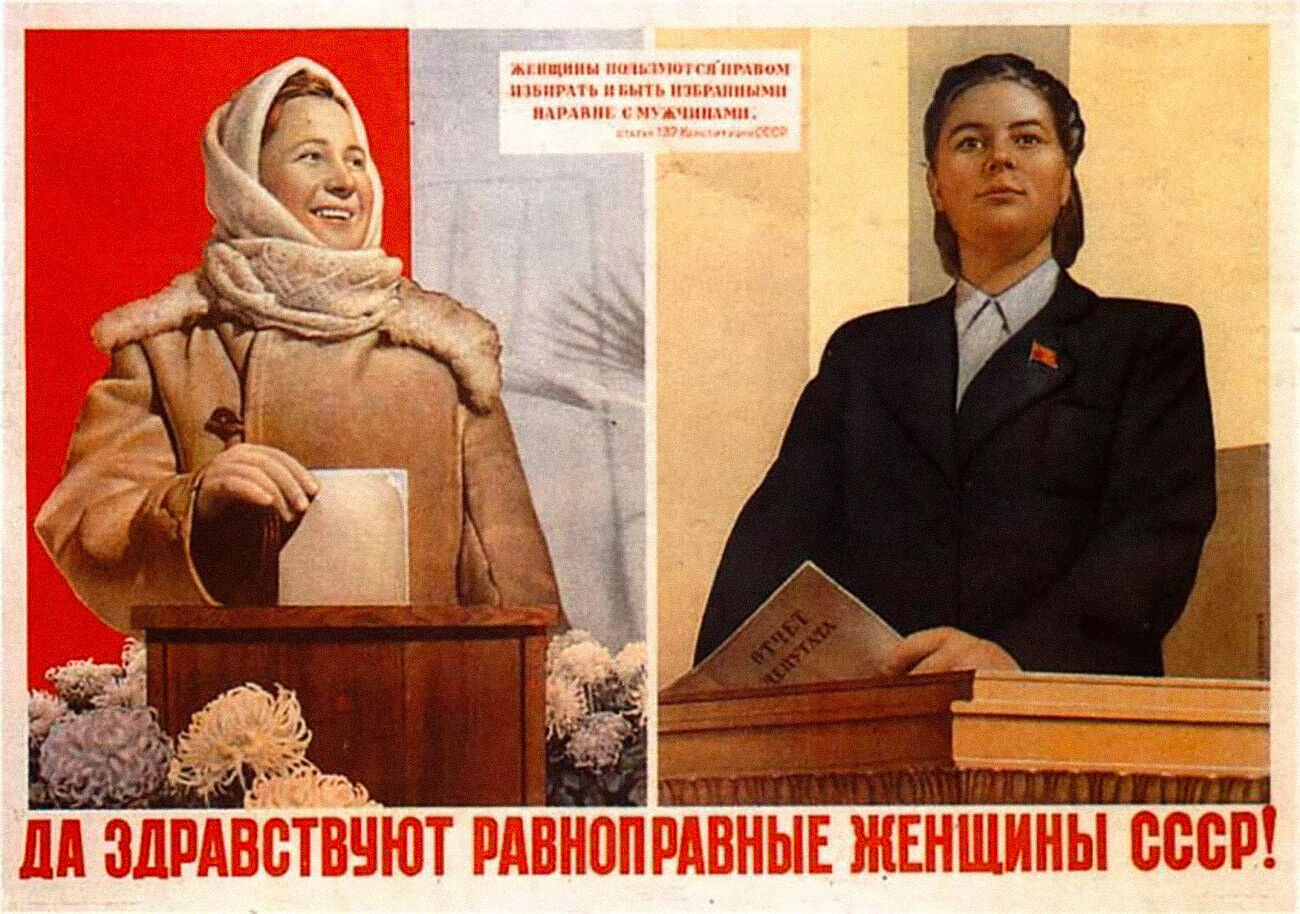
“Glory to equal rights for women in the USSR!”
Public domainIn order to teach women how to use their new rights and to teach a new way of life, the Bolsheviks created a special ‘Women’s Department’ in the Party. This was essentially made for the propaganda of feminism. Women had to be “weaned from domestic and kitchen slavery”, to break their centuries-old traditional views about their role. Read more about the ‘Women's Department’ here.
Dear readers,
Our website and social media accounts are under threat of being restricted or banned, due to the current circumstances. So, to keep up with our latest content, simply do the following:
If using any of Russia Beyond's content, partly or in full, always provide an active hyperlink to the original material.
Subscribe
to our newsletter!
Get the week's best stories straight to your inbox